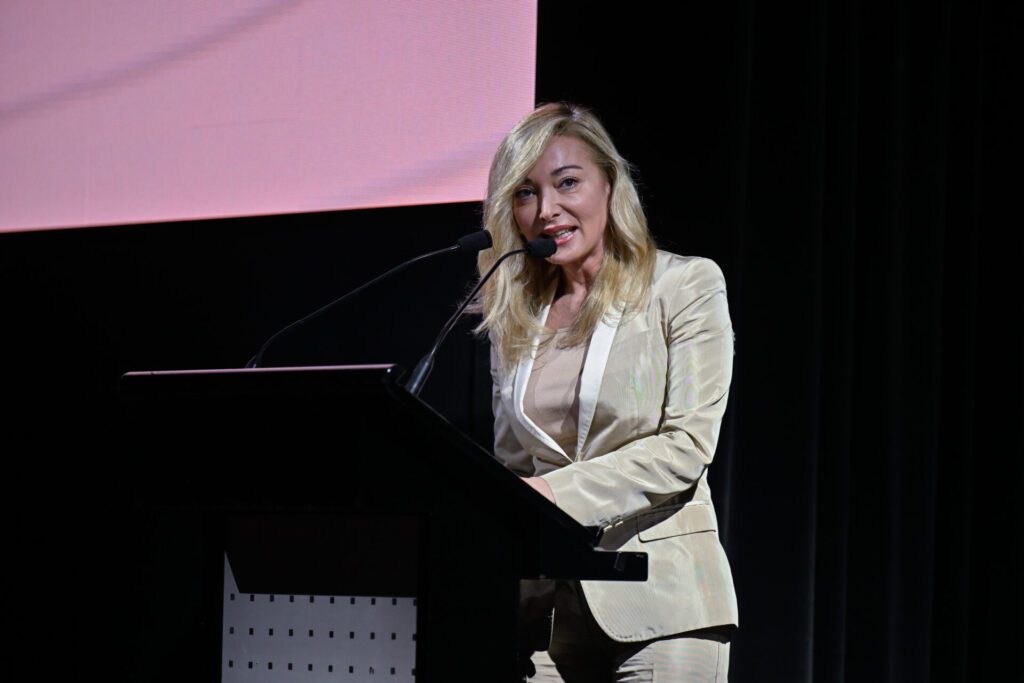Renowned fashion stakeholders convene in Singapore for Global Fashion Summit to spur sustainability impact


“This is a decisive decade in the history of humankind” – Christiana Figueres, Former Executive Secretary, UNFCCC
Friday 4th November: Hosted outside of Copenhagen for the first time in its 13-year history, on 3 November, Global Fashion Summit assembled over 250 stakeholders representing manufacturers, garment workers, retailers, brands, suppliers, NGOs, policy, and innovators in Singapore and online to spur industry action. The Summit was presented by Global Fashion Agenda (GFA), the non-profit organisation that is accelerating the transition to a net positive fashion industry.
The latest edition of the Summit was centred around the theme ‘Alliances for a New Era’, building on dialogues from the June edition in Copenhagen and gathering leaders from across the entire value chain to elevate diverse voices and foster alliances within the fashion industry and beyond, to drive sustainable impact.
The Summit’s first international edition facilitated even more conversations with manufacturer and supply chain voices to discuss crucial challenges and opportunities around working collaboratively with brands on equal terms. The programme featured bold panels, case studies, masterclasses and leadership roundtables reflecting on topics including ‘Data Scarcity: A Crisis of Measurement?’, ‘Disruption for Better Wage Systems’, ’Community and Circularity’, ‘Connecting the EU Textiles Strategy with the Value Chain’ and ‘Our Energy Transformation Moment’.
Attendees heard from over 50 speakers including H.E. Sandra Jensen Landi, Ambassador of Denmark to Singapore & Ambassador-Designate of Denmark to Brunei; H.E. Iwona Piórko, Ambassador of the European Union to Singapore; Anne-Laure Descours, Chief Sourcing Officer, PUMA; Baptiste Le Gal, Chief Revenue Officer APAC, Vestiaire Collective; Christian James Smith, Head of Sustainability Stakeholder Engagement, Zalando; Ninh Trinh, Director of Responsible Sourcing & Sustainability, Target; Roger Lee, CEO, TAL Apparel; Wilson Teo, President, Singapore Fashion Council; Edwin Keh, Chief Executive Officer, The Hong Kong Research Institute of Textiles and Apparel;Ashila Dandeniya, Founder, StandUp Lanka; and many more. View all speakers.
Federica Marchionni, CEO, Global Fashion Agenda, says: “The first international edition of Global Fashion Summit marked a special moment for us. What ensued was a day of critical dialogues representative of even broader stakeholder voices that are pivotal in steering the fashion industry. From our new alliance with the BBC Storyworks Commercial Productions and discussions around robust data to vital conversations about better wages and kickstarting the Global Circular Fashion Forum in Vietnam and Cambodia. As the focus shifts from words to deeds, we look forward to witnessing the ambitious and much-needed actions we inspire from the Summit, that not only reduce harm, but also deliver positive impact for the environment and societies.”
The event took place following the Sustainable Apparel Coalition’s two-day Annual Meeting in Singapore, which was powered by Global Fashion Agenda. Read more about the partnership.
Key takeaways and highlights from the event include:
Quotes from other leading speakers:
Find more information about the Summit at globalfashionsummit.com. All Summit content is available to access in the on-demand video library.
Supported by: